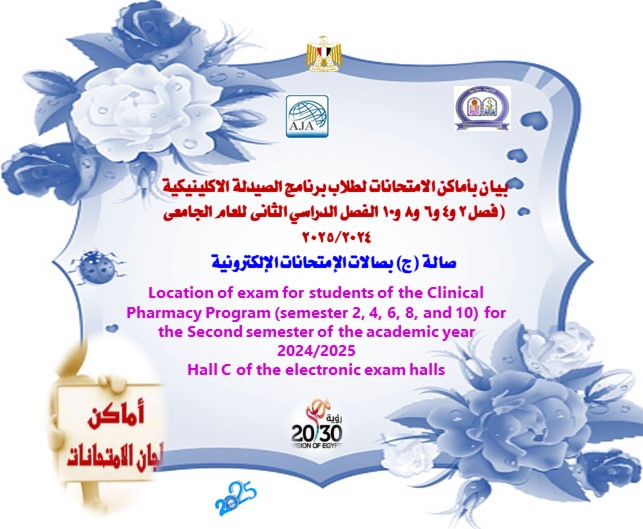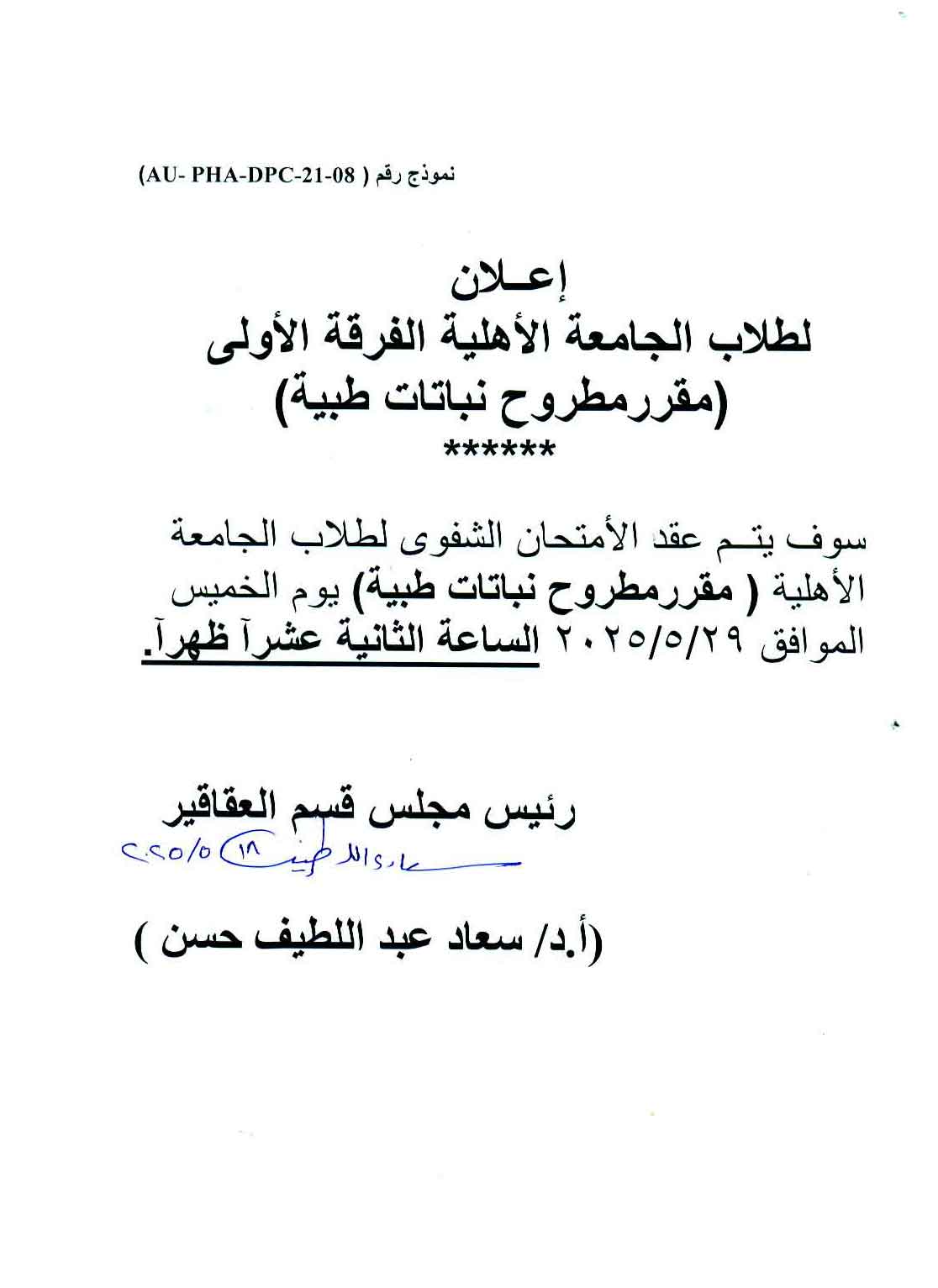

 Do you have any questions? (088) 2080369 - 2345622 Pharmacy_QAAU@pharm.aun.edu.eg
Do you have any questions? (088) 2080369 - 2345622 Pharmacy_QAAU@pharm.aun.edu.eg
Announcement for first-year Ahlia University students: An oral exam will be held for the Matrouh Medicinal Plants course.
Practical Grades Sheet for First-Year Students – National University – Pharmacognosy I Course
"Practical Grades Sheet for First-Year PharmD Students – Pharmacognosy I Course"

Click Below
?
Practical Grades Sheet for semester (2) Students Course: Pharmacognosy I

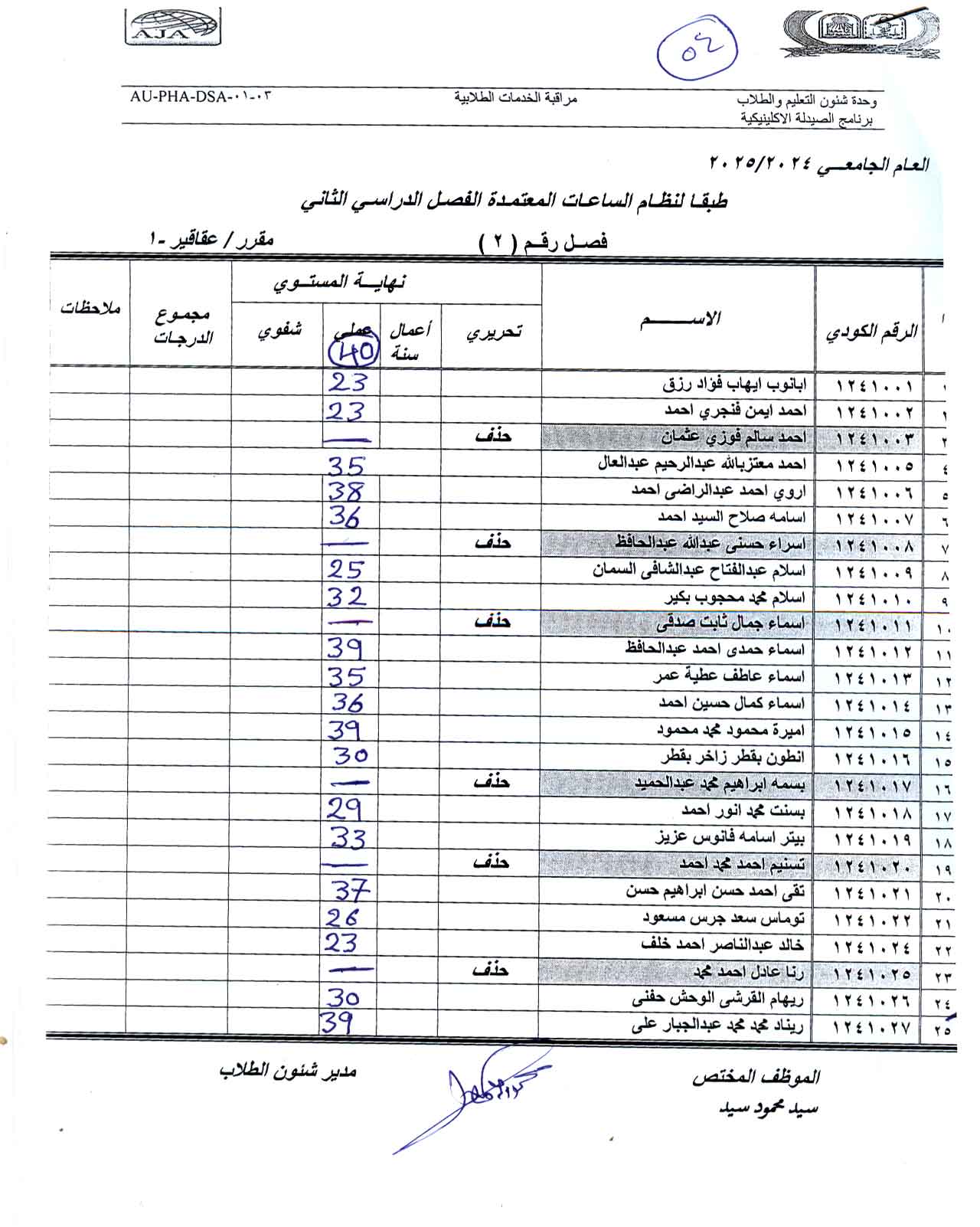
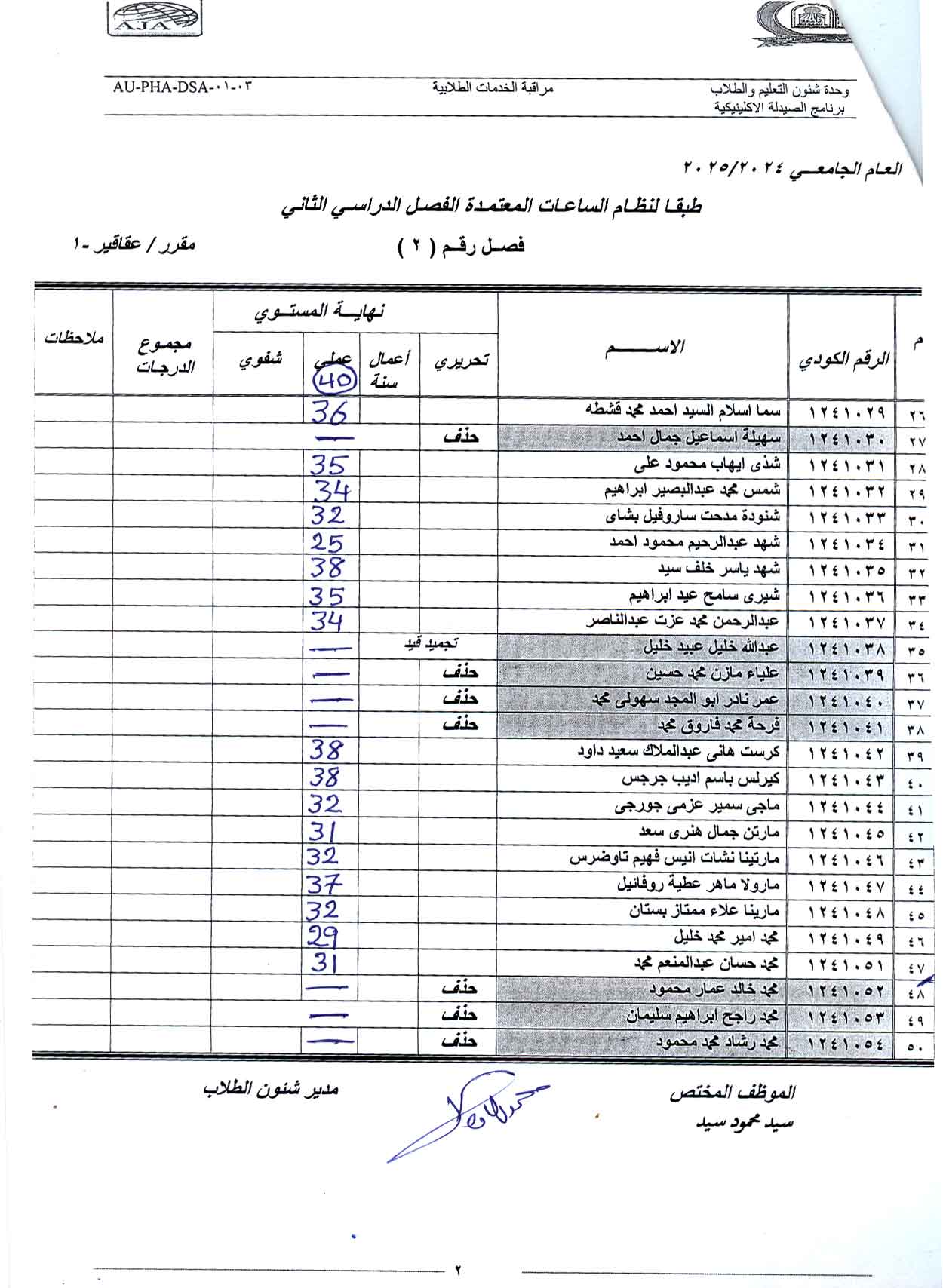
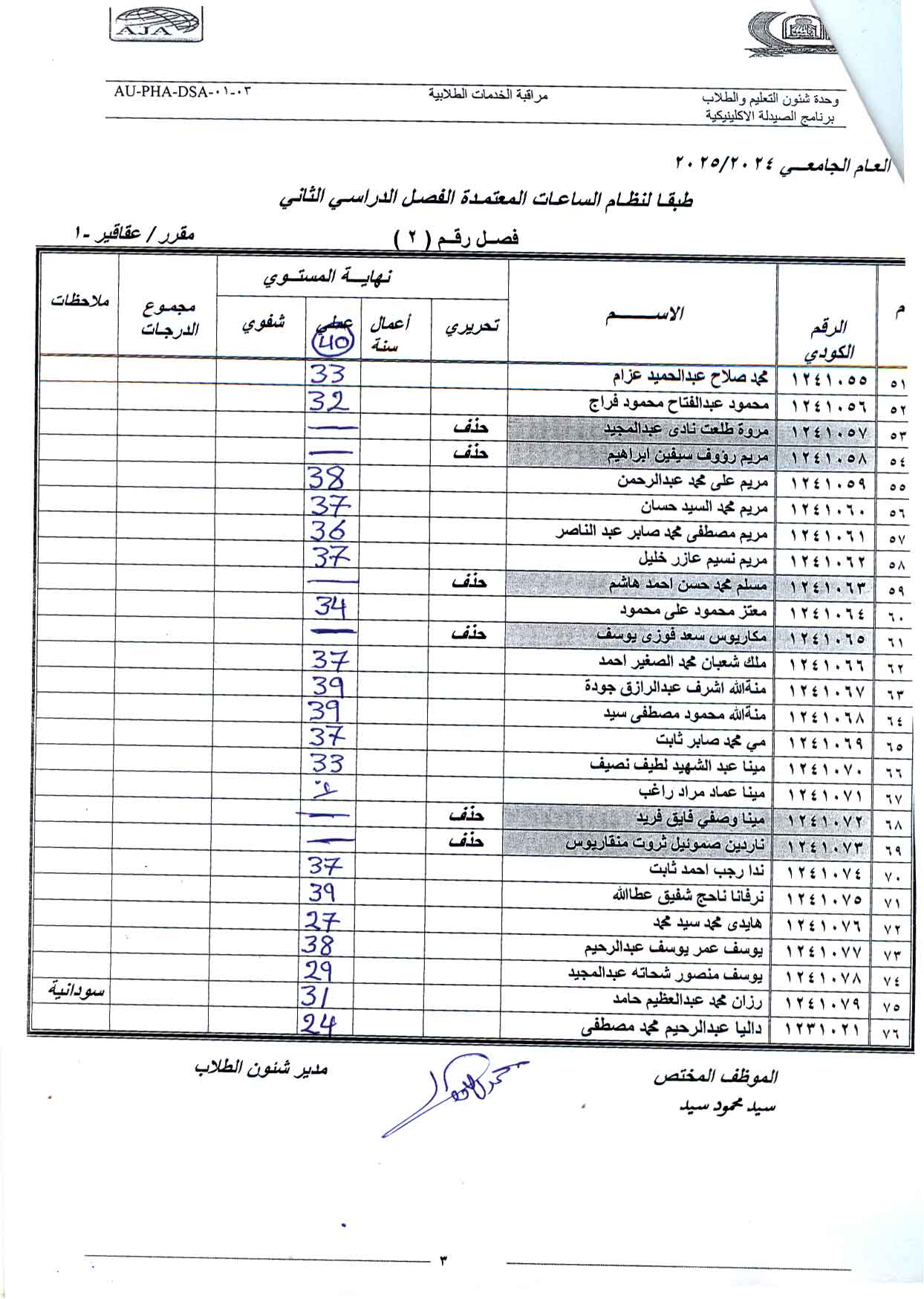
"Result of the appeals for PharmD students – offered course – Forensic and Applied Pharmacognosy practical exam grade."

After examining the grievances submitted by students (offered course (Forensic and Applied Pharmacognosy) for the practical exam and after reviewing the correction of the exam paper to ensure the corrected questions and reviewing the sum
It was found that the student / Omnia Hussein Abdel Naga
the practical grade becomes 21/25 marks
With our best wishes for success,,,

Meeting of the Executive Committee (Clinical Pharmacy Program) on Thursday, May 15, 2025.

God willing, the Executive Committee meeting and That will be on Thursday, May 15, 2025, at 11:00 AM.
The meeting will take place in the Faculty Council Hall, 5th Floor (Administrative Building)
Dean of the Faculty
(Prof. Gihan Nabil Hassan Fetih)
Meeting of the Libraries Committee of the Faculty of Pharmacy on Thursday, May 15, 2025.
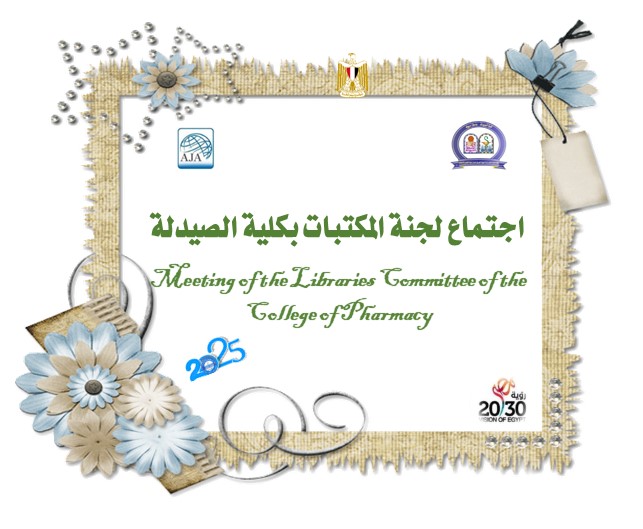
سوف يعقد بمشيئة الله تعالي اجتماع لجنة المكتبات بكلية الصيدلة وذلك يوم الخميس 15 مايو 2025 الساعة التاسعة والنصف صباحاً
وذلك بدعوة من السيدة الأستاذ الدكتورة/ جيهان نبيل حسن فتيح– عميد كلية الصيدلة ومقرر لجنة المكتبات.
سيعقد هذا الاجتماع بمكتب السيدة الأستاذ الدكتورة/ عميد الكلية
الدور الخامس (المبني الإداري).






